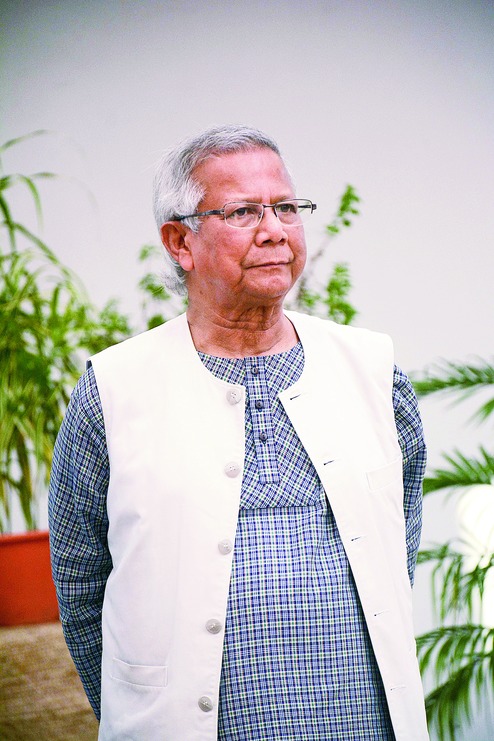
Jamshedpur: Think of becoming a job giver and not a job seeker, said Nobel Peace Prize winner, Bangladesh's economist and social entrepreneur Muhammad Yunus on Sunday, the last day of Samvaad, a tribal platform in Jamshedpur that turned global this year.
With the theme of triggering leadership in tribal and aboriginal youths, the five-day Samvaad with 1,000 delegates from 22 states in India and five countries, Australia, Canada, Kenya, Zimbabwe and Laos, ended on Sunday with Yunus's inspiring words, "I believe this generation has super human beings with the kind of technology they have (at their disposal) but those super powers will come out only if you feel them within you."
He added, "We need to think more in terms of being job-givers and not seekers because everybody is an entrepreneur."
Morning activities were held at Tribal Culture Centre in Sonari that Yunus, along with Tata Steel global managing director T.V. Narendran and intellectual preacher from Nagaland Niketu Iralu attended.

The morning started with John Corowa from Queensland Australia playing the didgeridoo, an Australian aboriginal wind instrument, followed by a performance by two Canadian musicians Louie Poirer and Kathia Rocks and another by Manipur folk musician Rewben Mashangva who revived the musical tradition of Tangkhul Naga. Then came dance performances from the Paniyar group of Kerala's Wayanad district and the Kenyan ethic group Maasai.
During the Q&A session, Iralu urged youths to work selflessly. He added one need not be around to witness the change one had started. "The end result may come after you die. If you want to see it till you're alive or when you want too much for yourself, it becomes a dirty process."
Narendran and Iralu also released two books, Policies and Practices, which assess India's tribal health system, and Walk with Me, a compilation of leadership case studies.
Tata Steel also launched the Samvaad Fellowship this year in which scholars Bangwan Lohra from Arunachal Pradesh, N. Krishnan from Karnataka and Vimal Bhai Chaudhary from Gujarat will each receive Rs 50,000 a month for a year on research on developing their native tribal languages.
Four scholars - Abhay Kujur from Jharkhand, Nalchol Tusse from Nagaland, Sadmita Padhi from Odisha, and Shibil Sadh Ati from Kerala - were felicitated for their research papers. In a film competition on tribal issues, Deepak Kumar Bera from Baripada in Odisha and Dasrath Bera from Deogarh (Devagarh) in Odisha received certificates while a group of Karim City College students of Jamshedpur got special mention for their film Hadia.
"When Samvaad started four years ago, we didn't know how this energy will translate beyond just an event," said Narendran.
Asked for his thoughts, Yunus smiled, "I am always delighted to meet young people."
The event concluded with a cultural extravaganza held at Gopal Maidan in Bistupur.
As a tribal youth, what is your takeaway from Samvaad? Tell ttkhand@abpmail.com










